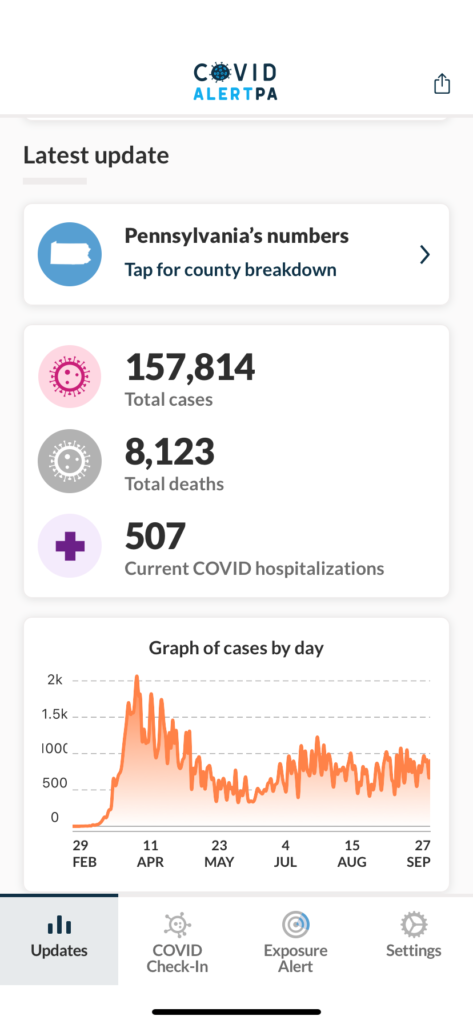CHIBE Assists State with COVID Alert PA App

Penn’s Center for Health Incentives & Behavioral Economics (CHIBE) is assisting the Pennsylvania Department of Health (DOH) with COVID Alert PA, a free app designed to help reduce the spread of COVID-19.
“The app uses Bluetooth to exchange anonymous IDs between phones in close proximity,” said CHIBE’s Erica Dixon, PhD. “If a person with the app tests positive for COVID, they can put in a code from PA DOH to alert those who were in close contact with them.”

The app boosts traditional contact tracing efforts, casting a wider net beyond the people that an individual knows they spent time with. It can help notify people who may have been nearby a person with the virus while standing in line at the supermarket, waiting for a bus, or in some other public area. If a user has been near a person who has tested positive for COVID-19, they will receive a push notification that will contain information on what to do next.
CHIBE has been working with the DOH specifically on user experience and uptake of the app.
“We’re focusing particularly on high impact populations such as college students, large employers, and testing sites, as well as working to understand any barriers to uptake in populations facing health disparities in relation to COVID,” Dr. Dixon said.
COVID Alert PA also has a symptom checker and updates on total COVID cases, deaths, and hospitalizations.
As of September 29, the app has acquired over 162,000 users since its launch on September 22, 2020, when Governor Tom Wolf and Secretary of Health Dr. Rachel Levine introduced it. It is not intended to be used by those under the age of 18. You can download it from the Apple App Store or Google Play Store.
The app does not collect, transmit, or store personal information, so the contact tracing process remains anonymous. It uses the Exposure Notification System (ENS) provided by Apple and Google. For more information, you can find a list of FAQs on the DOH’s website and learn more on the State’s COVID Alert PA page.
CHIBE members Dr. Dixon; Kevin Volpp, MD, PhD; Laura Gibson, PhD; Marissa Sharif, PhD; and Lizzie Bair, MS, are working on this project.